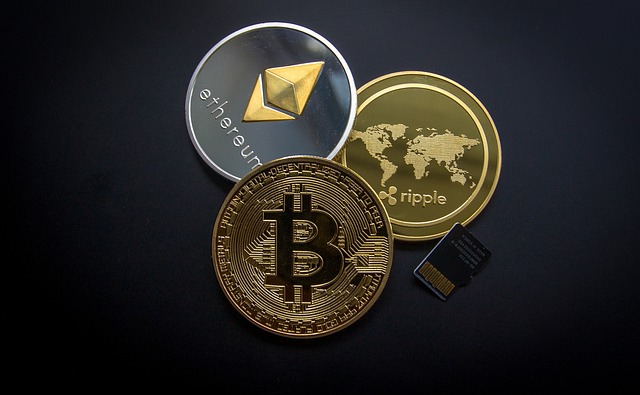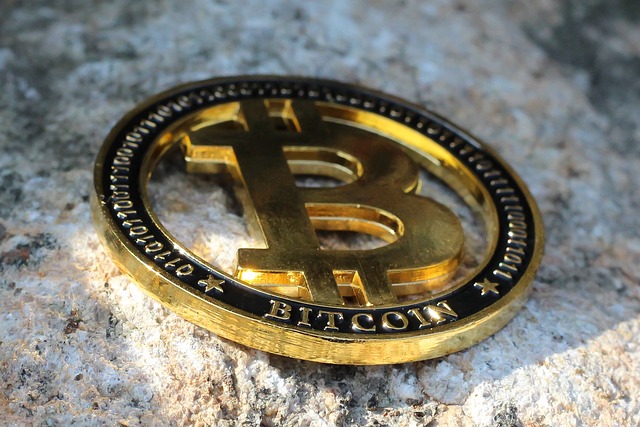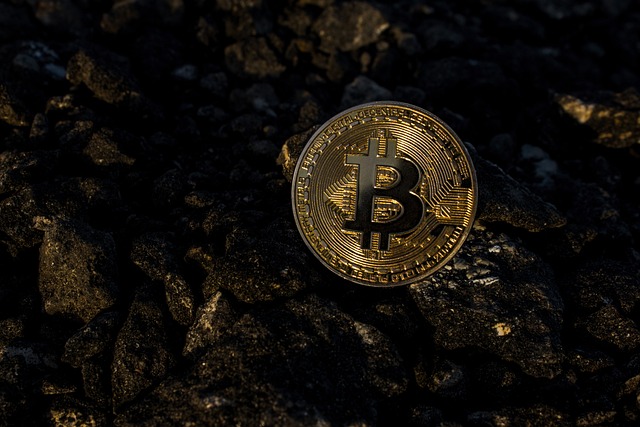Decentralized Finance: Pros and Cons for a Changing Financial Landscape
Decentralized Finance: Pros and Cons for a Changing Financial Landscape

DeFi Explained: Understanding the Basics of Decentralized Finance
Decentralized Finance, commonly referred to as DeFi, is a revolutionary concept that aims to transform the traditional financial landscape. It operates on blockchain technology, enabling users to access financial services in a decentralized manner. Unlike traditional finance, which relies heavily on intermediaries such as banks, DeFi offers a trustless and permissionless environment, empowering individuals to have direct control over their assets.
At the core of DeFi are smart contracts, which are self-executing contracts with predetermined conditions. These contracts are powered by blockchain technology and eliminate the need for intermediaries, making transactions more efficient and cost-effective. With DeFi, individuals can engage in various financial activities such as lending, borrowing, trading, and investing directly from their digital wallets, without the need for banks or other financial institutions. This not only reduces transaction fees but also provides greater accessibility and inclusivity, particularly for unbanked populations.
The Rise of Decentralized Finance: A Game-Changer in the Financial Industry
Decentralized Finance, or DeFi, is emerging as a game-changer in the financial industry, revolutionizing the way we interact with money and financial services. Unlike traditional centralized financial systems, DeFi operates on a decentralized network, powered by blockchain technology. This allows for greater transparency, accessibility, and efficiency in financial transactions.
One of the key features of DeFi is its ability to eliminate the need for intermediaries such as banks and financial institutions. Instead, individuals can directly engage with financial services like lending, borrowing, and trading through decentralized platforms. This not only cuts down on costs but also empowers individuals by giving them full control over their assets and financial activities. Moreover, the decentralized nature of these platforms ensures that transactions are secure and immune to censorship, offering a level of trust that is lacking in traditional financial systems. As a result, DeFi is opening up a world of opportunities for those who have limited access to traditional banking services and are seeking alternative ways to engage with the financial market.
The Pros of Embracing Decentralized Finance in a Changing Financial Landscape
Decentralized finance, often referred to as DeFi, offers numerous advantages in today’s ever-evolving financial landscape. One of the key pros of embracing DeFi is the potential for increased financial inclusivity. Traditional financial systems have often excluded individuals who lack access to banking services or reside in underbanked regions. With DeFi, anyone with an internet connection and a digital wallet can participate in various financial activities such as lending, borrowing, and investing. This democratization of finance empowers individuals who were previously left out of the traditional financial system, enabling them to take control of their financial future.
In addition to increased inclusivity, another pro of decentralized finance is the elimination of intermediaries. Traditional financial institutions often act as intermediaries between individuals and their financial assets, adding layers of bureaucracy and fees. DeFi eliminates the need for intermediaries by leveraging blockchain technology and smart contracts. With blockchain, transactions can be executed directly between parties, ensuring transparency, security, and reduced costs. The removal of middlemen not only streamlines financial processes but also reduces the potential for fraud and corruption, creating a more efficient and trustworthy financial system for all participants.
The Cons of Decentralized Finance: Potential Risks and Drawbacks
While decentralized finance (DeFi) offers numerous benefits and opportunities, it’s important to acknowledge the potential risks and drawbacks that come with this emerging financial paradigm. One of the main concerns associated with DeFi is its vulnerability to smart contract bugs and security breaches. Since DeFi applications are built on blockchain technology, any flaw or vulnerability in the underlying smart contracts can lead to serious financial losses for users. This risk is further exacerbated by the fact that smart contracts, once deployed, are immutable and cannot be easily modified or revoked, which leaves little room for error or recourse in case of an exploit.
Another notable drawback of decentralized finance is the lack of regulatory oversight and consumer protection. Unlike traditional financial systems that are subject to rigorous regulations, DeFi operates in a relatively unregulated space. While this may offer exciting opportunities for innovation and freedom from centralized control, it also exposes users to potential fraud, scams, and market manipulation. Additionally, the absence of a centralized authority means that there is no established process for resolving disputes or recovering lost funds in a DeFi ecosystem. As a result, individuals participating in DeFi are solely responsible for their own due diligence and are potentially more susceptible to financial risks.
How Decentralized Finance Empowers Individuals and Eliminates Middlemen
Decentralized finance (DeFi) has emerged as a powerful tool that empowers individuals by eliminating the need for intermediaries in financial transactions. Traditionally, individuals have had to rely on banks, brokers, and other financial institutions to facilitate their transactions, which often came with high fees, limited access, and a lack of transparency. With the advent of DeFi, individuals now have the ability to directly interact with the financial system, bypassing middlemen and gaining full control over their financial activities.
One of the biggest advantages of decentralized finance is the removal of unnecessary barriers and restrictions. Through blockchain technology and smart contracts, individuals can now engage in financial activities such as lending, borrowing, trading, and investing without the need for a central authority. This opens up a world of opportunities, especially for the unbanked and underbanked populations who have been historically excluded from traditional financial services. Furthermore, the elimination of middlemen reduces transaction costs, enhances speed, and provides a more secure and transparent environment for financial activities. By empowering individuals and eliminating middlemen, decentralized finance is paving the way for a more inclusive and efficient financial ecosystem.
The Impact of Decentralized Finance on Traditional Banking Systems
Decentralized finance, commonly known as DeFi, is revolutionizing the traditional banking systems as we know them. With the rise of blockchain technology and smart contracts, individuals now have the power to eliminate intermediaries and take control of their finances. This shift has significant implications for how we view and interact with traditional banks.
One of the most notable impacts of decentralized finance on traditional banking systems is the potential disruption of traditional lending practices. In a decentralized financial ecosystem, anyone can become a lender or borrower without the need for a central authority. This opens up access to financial services for individuals who may have been excluded from traditional banking systems due to strict requirements or inadequate credit history. Additionally, the elimination of intermediaries reduces transaction costs, making lending and borrowing more efficient and affordable for all parties involved.
Furthermore, decentralized finance challenges the traditional notion of trust in banks. In decentralized systems, transactions are recorded on a public and immutable ledger known as the blockchain.


The impact of decentralized finance on traditional banking systems is still evolving, with opportunities and challenges yet to be fully realized. As we navigate this new era of financial innovation, it is crucial to examine the potential risks and drawbacks associated with decentralized finance in order to determine its long-term viability and ensure its responsible adoption in the ever-changing financial landscape.
Exploring the Potential of Smart Contracts in Decentralized Finance
Smart contracts have emerged as a key component of decentralized finance (DeFi), revolutionizing the way transactions are executed in the financial industry. These self-executing contracts are built on blockchain technology and eliminate the need for intermediaries, such as banks or financial institutions, to facilitate transactions. With the use of smart contracts, parties can now enter into agreements directly, without relying on a trusted third party.
One of the main advantages of smart contracts in decentralized finance is their ability to automate complex processes. By utilizing pre-programmed conditions and algorithms, smart contracts can automatically execute transactions once the specified conditions are met. This eliminates the need for manual intervention, reducing the risk of errors and increasing efficiency. Additionally, smart contracts ensure that all parties involved adhere to the agreed-upon terms, as the code of the contract is immutable and cannot be altered. This level of transparency and trust can foster greater confidence in financial transactions and potentially reduce fraudulent activities.
The Role of Blockchain Technology in Driving Decentralized Finance
Blockchain technology plays a crucial role in driving decentralized finance (DeFi) by providing a secure and transparent foundation for all transactions. By utilizing a decentralized ledger, blockchain eliminates the need for intermediaries or trusted third parties, allowing for direct peer-to-peer transactions. This not only reduces fees and processing times but also ensures a higher level of security and immutability.
Moreover, blockchain enables the use of smart contracts, which are self-executing agreements that automatically facilitate transactions once predefined conditions are met. These smart contracts enforce transparency and eliminate the need to rely on centralized authorities. Additionally, the transparent nature of blockchain technology allows for improved auditing and ensures that all transactions are publicly recorded, enhancing trust and accountability in financial transactions.
• Blockchain technology provides a secure and transparent foundation for decentralized finance (DeFi).
• It eliminates the need for intermediaries or trusted third parties, enabling direct peer-to-peer transactions.
• This reduces fees and processing times while ensuring higher security and immutability.
• Smart contracts, enabled by blockchain, automatically facilitate transactions based on predefined conditions.
• Smart contracts enforce transparency and eliminate the reliance on centralized authorities.
• The transparent nature of blockchain allows for improved auditing and enhances trust in financial transactions.
Regulatory Challenges and Compliance Issues in the World of Decentralized Finance
Decentralized finance (DeFi) has emerged as a major disruptor in the financial world. However, this new frontier is not without its regulatory challenges and compliance issues.

Since DeFi operates in a decentralized manner, traditional regulatory measures often fall short in providing adequate oversight. This creates a situation where loopholes can be exploited, and potential risks can go unnoticed. The absence of central authorities also makes it challenging to enforce compliance and protect consumers from fraudulent activities. As a result, regulators are grappling with the task of adapting existing regulations or developing new ones to mitigate these risks, while still fostering innovation and growth in the DeFi ecosystem.
The Future of Decentralized Finance: Opportunities and Challenges Ahead
As decentralized finance (DeFi) continues to gain momentum, the future of this innovative financial system appears promising, with numerous opportunities on the horizon. One such opportunity lies in the potential for global financial inclusion. DeFi opens up access to financial services to individuals around the world who previously may have been excluded from traditional banking systems. With just a smartphone and an internet connection, individuals can participate in DeFi platforms and access a range of financial products and services, such as lending, borrowing, and trading. This level of financial inclusion has the power to transform the lives of many and bridge the gap between the unbanked and the traditional financial world.
However, as with any emerging technology, decentralized finance also presents challenges that must be addressed. One such challenge lies in regulatory compliance. As DeFi operates on a decentralized network and often bypasses traditional intermediaries, it can be difficult for regulatory bodies to effectively enforce laws and regulations. This raises concerns around consumer protection, anti-money laundering (AML), and know your customer (KYC) protocols. Striking a balance between innovation and regulatory compliance will be crucial for the future of DeFi, as it strives to gain wider acceptance and legitimacy in the financial industry.
What is decentralized finance?
Decentralized finance, or DeFi for short, refers to a new financial system that operates on blockchain technology, allowing individuals to access financial services without the need for intermediaries like banks.
How does DeFi differ from traditional finance?
Unlike traditional finance, DeFi removes the need for middlemen and centralized institutions, giving individuals direct control over their finances. It also enables greater transparency, accessibility, and improved efficiency.
What are some advantages of embracing DeFi?
Embracing DeFi can provide individuals with greater financial inclusivity, lower transaction costs, faster processing times, and the ability to earn passive income through various decentralized applications (DApps) and protocols.
Are there any risks or drawbacks to DeFi?
Yes, there are potential risks involved with DeFi, such as smart contract vulnerabilities, hacking threats, and regulatory uncertainties. It’s important for users to exercise caution and conduct thorough research before engaging in DeFi activities.
How does DeFi empower individuals and eliminate middlemen?
DeFi empowers individuals by giving them control over their assets and financial decisions, eliminating the need for intermediaries like banks. It allows users to directly interact with decentralized applications and protocols, enabling greater financial freedom.
What impact does DeFi have on traditional banking systems?
DeFi poses a potential challenge to traditional banking systems as it offers alternative financial services, such as lending, borrowing, and trading, outside the control of traditional institutions. This could lead to a shift in the industry’s dynamics.
How do smart contracts play a role in DeFi?
Smart contracts are self-executing contracts that automatically execute predefined actions when certain conditions are met. In DeFi, smart contracts enable automated financial transactions, eliminating the need for intermediaries and reducing the risk of human error.
What role does blockchain technology play in driving DeFi?
Blockchain technology is the underlying technology behind DeFi, providing the necessary infrastructure for secure, transparent, and immutable transactions. It ensures trust and eliminates the need for intermediaries through its decentralized nature.
What challenges does DeFi face in terms of regulations and compliance?
DeFi currently faces regulatory challenges and compliance issues, as it operates outside the traditional regulatory frameworks of the financial industry. There is a need for the development of clear regulations to ensure consumer protection and mitigate potential risks.
What does the future hold for DeFi?
The future of DeFi holds vast opportunities for innovation and disruption in the financial industry. However, there are also challenges to overcome, such as scalability, security, and regulatory concerns. With continued development and adoption, DeFi has the potential to revolutionize the way we interact with finance.
Todays Featured Product:
Buy, exchange and grow your crypto securely with a Ledger hardware wallet, combined with the Ledger Live app. It’s never been easier to keep your crypto safe and accessible. Buy direct from Ledger.com and get todays Special Offers Here.




